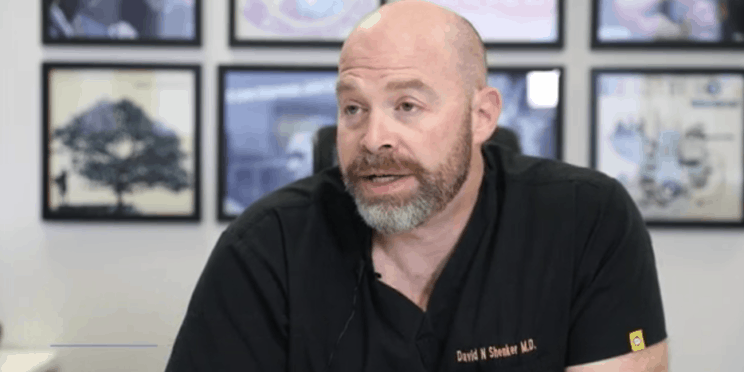Transcript
My name is David Shenker, I am a doctor her at the Woman’s Clinic and I’ve been here since 2008. Today I want to talk about two procedures that we do here commonly, and all of us do them. The reason I want to talk about them is because I feel like most of my patients don’t even know that they exist. The two things that we are mostly hearing about are really heavy periods, we call that menorrhagia. And the other one is incontinence, or leaking urine later in life. These are two problems that we hear often here, but patients aren’t aware that we have some pretty simple out patient procedures that can really be rewarding and beneficial for them, and the results are really good for them.
So the first one is for heavy periods is called an endometrial ablation. Some people may have heard of it or have a friend that’s had it done. It’s a really quick out-patient procedure. We do it in out-patient surgery, sometimes we can do it in the clinic. It ranges anywhere in time frame from 90 seconds, to 10 minutes, so it’s really quick. You do go to sleep for it and that’s a common question I get, “am I going to have to be awake for this?” What it’s doing is it’s destroying, for lack of a better term, the base layer of the lining of the uterus that grows every month and makes a menstrual cycle. So there’s literally nothing growing inside the uterus anymore. A lot of people say, “well isn’t it natural to have a period and is that a problem?” And it is natural to have a period, but you don’t have to have one. An important point here is this is supposed to be done after child bearing. We don’t want to be messing with the lining of the uterus if you’re still going to have children.
They always say, “what’s the side effect?” Well the side effect is no period. There is no other side effect from it, and it does not effect your hormones. That’s another question, “are my hormones going to be effected?” No, it does nothing to your ovaries or your hormones, or anything, so basically you just stop having a heavy period.
The second one is a surgery for incontinence, or leaking urine. A lot of women come in here and they are kind of embarrassed to bring that subject up, so I always ask it. When they tell me they are having issues with it, and usually it’s to a point where you’re having to wear a pad everyday or something like that, it’s very inconvenient for you. You don’t have to really suffer from that as well. There is a procedure we do called a urethral sling or a mini sling. It’s about one-centimeter-wide that goes underneath the urethra and really we are just synching it up to keep urine in the bladder. The results on this are very good I would say upwards of 90 percent of people become dry, and no leaking after this procedure.
Both of these procedures, I think I get the most reward from, from my patients just because the results are so good, that they’re so happy they did it. I would say that’s the two things that we’re doing now, that women don’t know enough about. These procedures are out there, and can help their quality of life.

